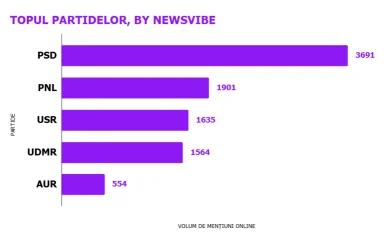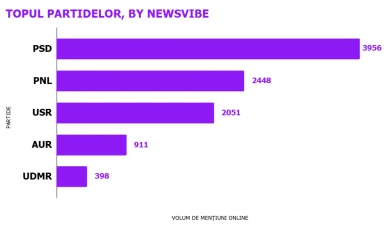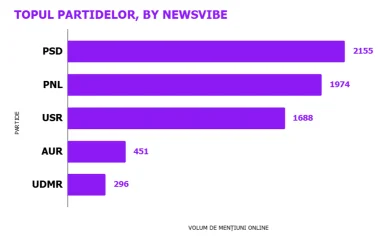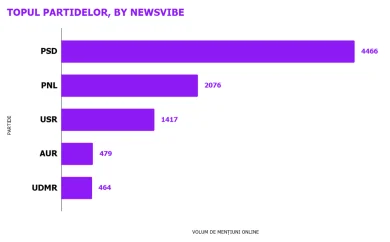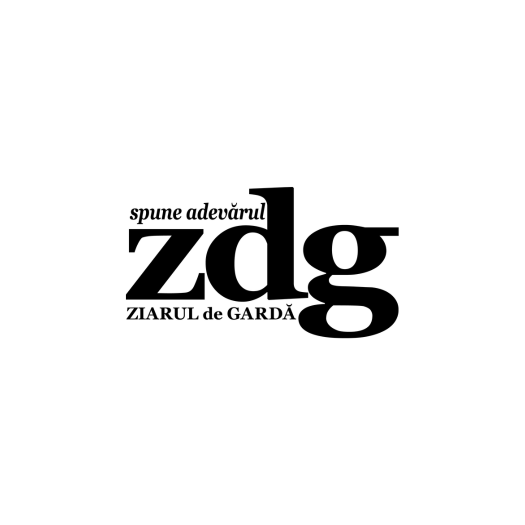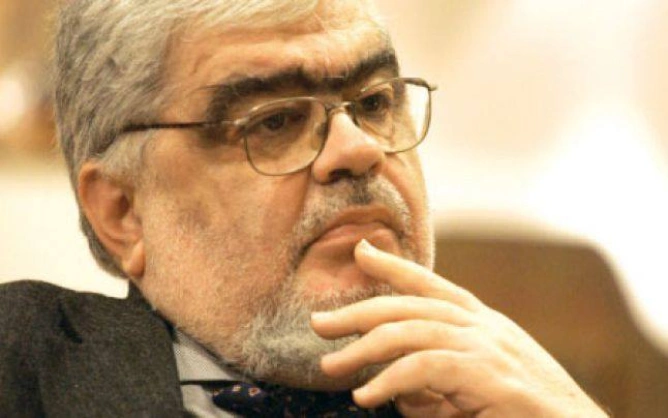
According to data extracted and analyzed with the help of NewsVibe, an AI media monitoring platform, nearly 6,400 mentions of Hungary were recorded in the most relevant online sources in Romania, generating over 156 million estimated views in the last 30 days. These figures indicate an exceptional interest of the Romanian media space towards the neighboring state, but also the fact that Hungary has been involved in events with major regional and European impact.
During this period, Hungarian writer László Krasznahorkai became the laureate of the Nobel Prize for Literature, and Prime Minister Viktor Orbán was present in Romania at the UDMR Congress, where he gave interviews to the press. Meanwhile, disputes between Budapest and Brussels continued, while Hungary's opposition to Ukraine's EU accession or to the continuation of European support for Kiev in the war with Russia became a recurring theme in public debate.
Also in the last month, the divergences between Kiev and Budapest intensified, following Ukraine's accusations that Hungarian drones had violated its airspace, as well as mutual accusations of espionage between the two states.
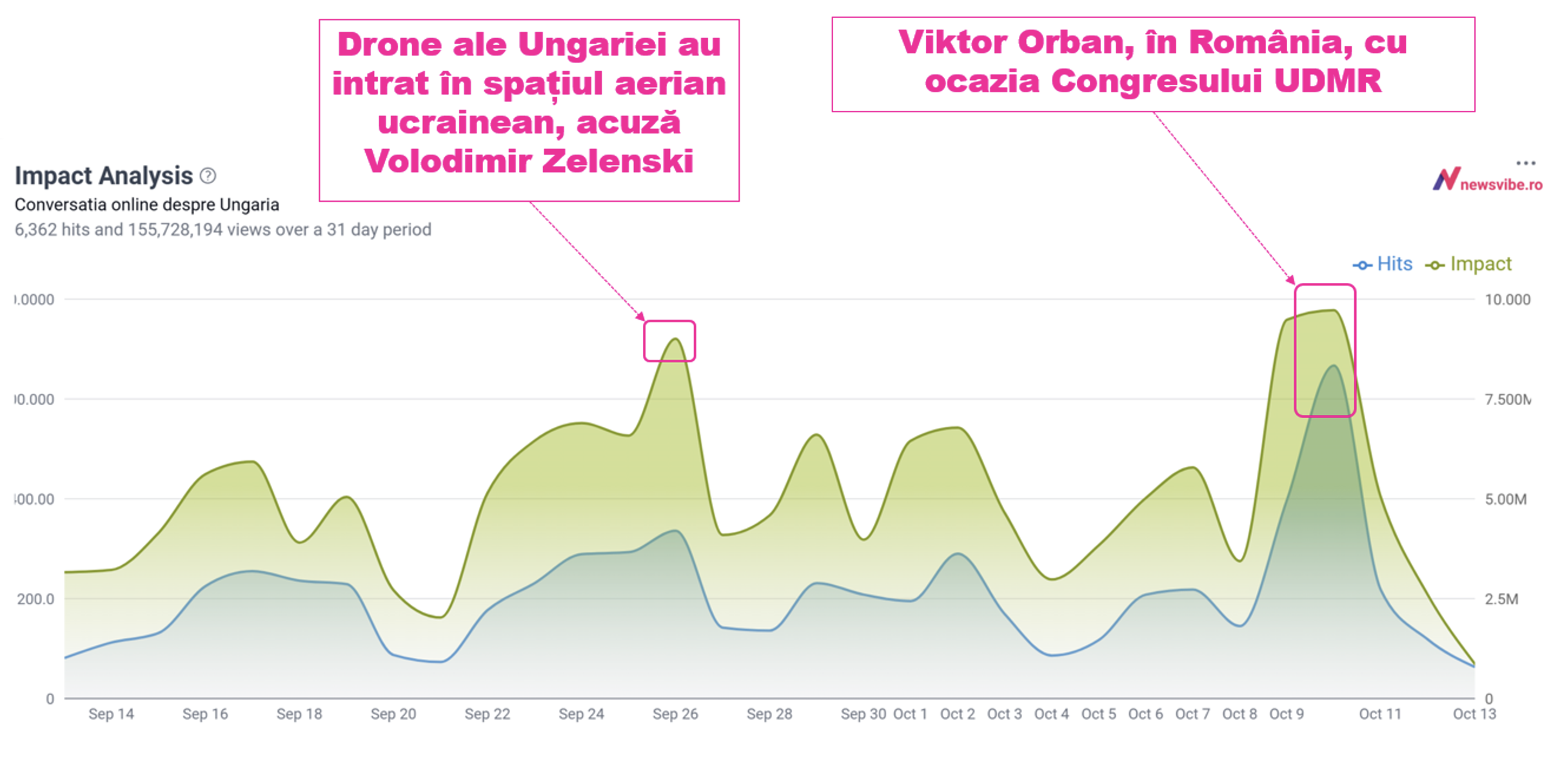
NewsVibe Chart. The evolution of the number of mentions about Hungary, respectively the total impact of these, in the last 30 days
Trending Topics
The main themes that have experienced accelerated exposure in discussions about Hungary in the Romanian digital space are Nobel awarded to Hungarian writer László Krasznahorkai (a subject that also generated numerous mentions about Mircea Cărtărescu and the Swedish Academy), as well as UDMR Congress.
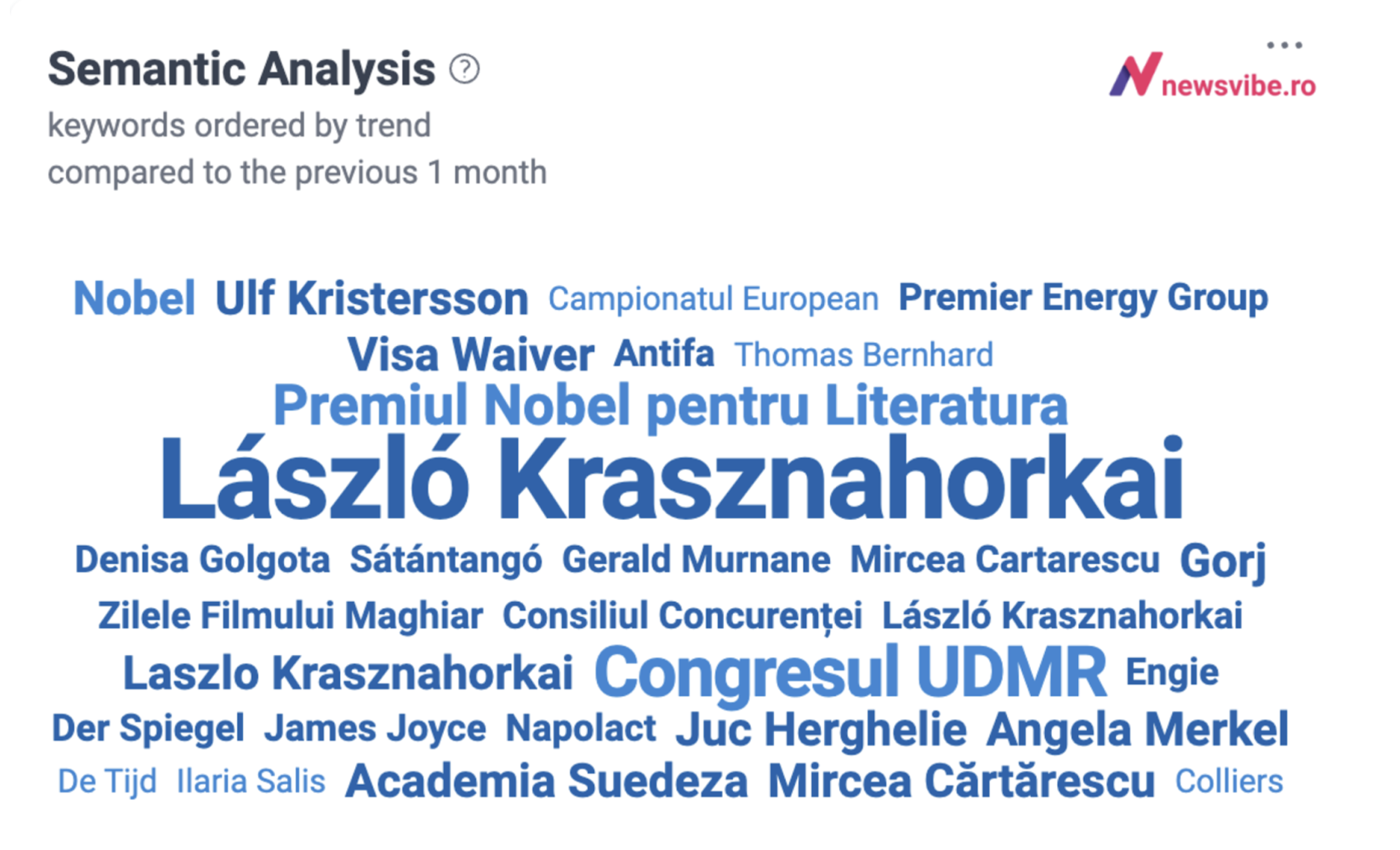
NewsVibe Chart. Top entities with accelerated visibility, mentioned in the context of references to Hungary, in the last 30 days
Map of Semantic Associations
Through semantic network analysis, by which NewsVibe maps the structure and connections within an online conversation, we can observe an overview of the themes discussed in the digital environment regarding Hungary during the analyzed period.
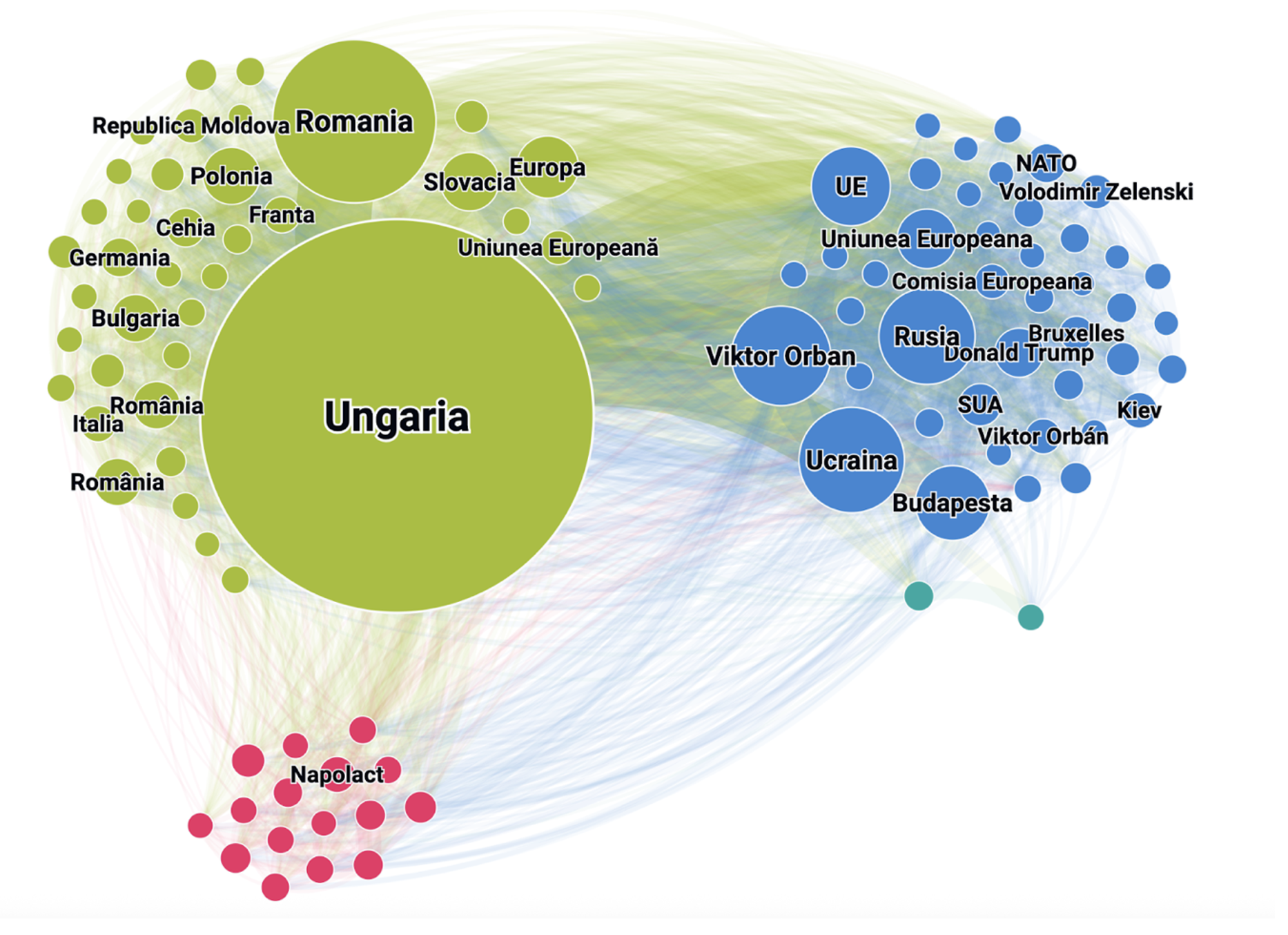
NewsVibe Chart. The semantic network of the online conversation about Hungary, in the last 30 days
What the analysis shows us:
- A first consistent area of the debate groups references to states of the European Union, including Romania, reflecting Budapest's positioning within the European project and tensions with officials from Brussels. In the case of Romania, strong connections are also fueled by events directly related to the bilateral relationship, such as Viktor Orbán's presence at the political event of UDMR and the messages conveyed in this context.
- A second area is dominated by terms such as Russia, Ukraine, Zelensky, European Union, Donald Trump, or Kiev and captures the online conversation focused on Hungary's positions regarding the war in Ukraine. This sphere also includes themes of diplomatic tension between Kiev and Budapest in recent times.
- A third area, of much smaller dimensions, targets a recent economic subject: the possible acquisition by a Hungarian company of the holder of the Napolact brand, a transaction analyzed by the Competition Council and commented in the public space by political voices, including former Energy Minister Sebastian Burduja.
SENTIMENT. The NewsVibe platform has created an advanced automated sentiment analysis system, which uses specially trained AI algorithms and LLM tools to detect nuances of tone – favorable, unfavorable, or neutral – in the context of references to relevant entities for an online conversation.
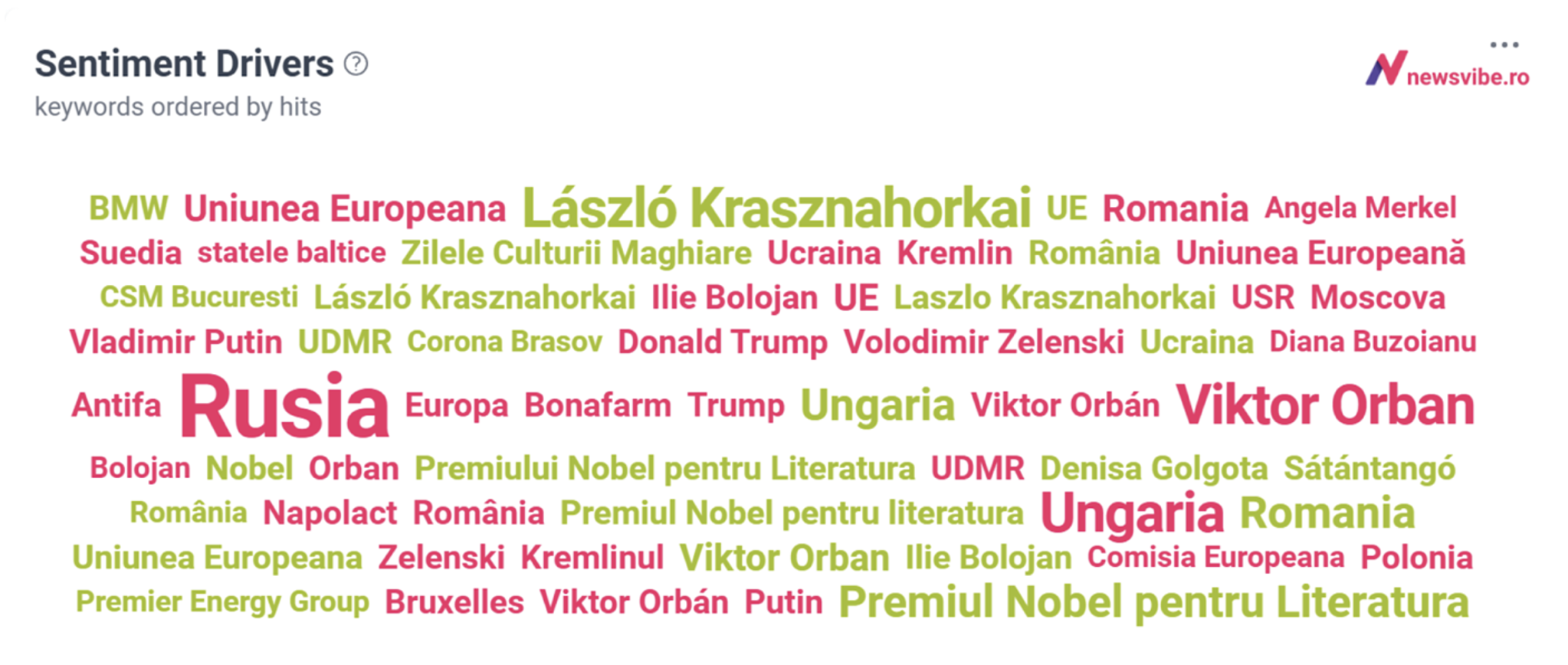
NewsVibe Chart. The automatic assessment of the tone of the online conversation about Hungary, in the last 30 days
What the analysis shows us:
- Hungary and Viktor Orbán are present in predominantly polarizing and tense contexts, especially those related to the war in Ukraine.
- In this context, Russia is the entity most frequently associated with negative media coverage, being perceived as the main factor generating controversies and conflicts.
- In contrast, in positive online media contexts, the name László Krasznahorkai, this year's laureate of the Nobel Prize for Literature, whose international recognition has generated a wave of favorable visibility for Hungary.
